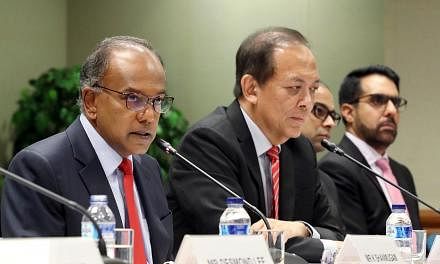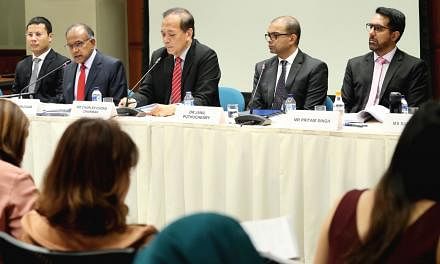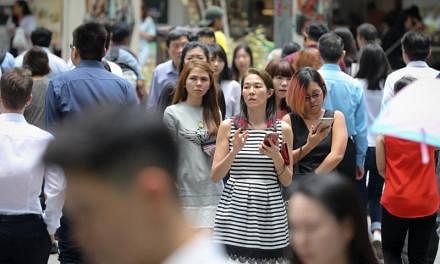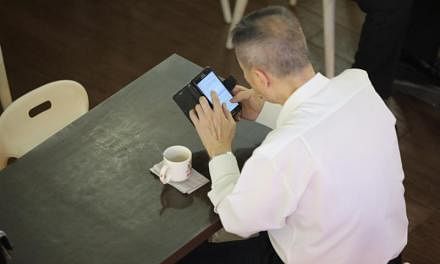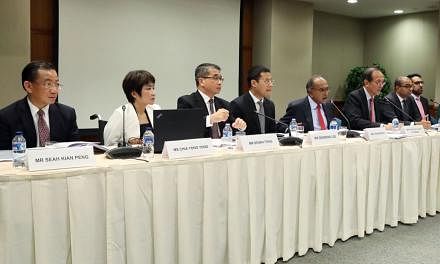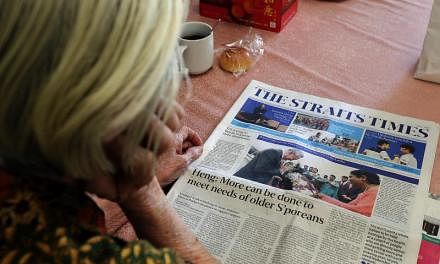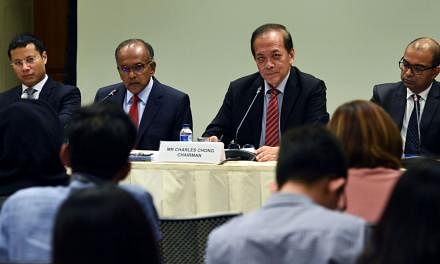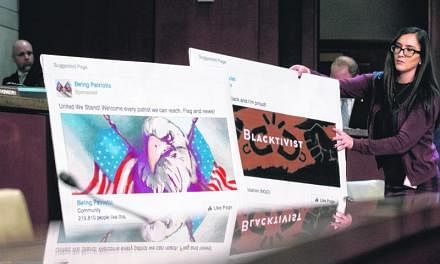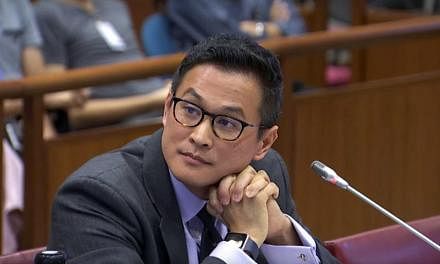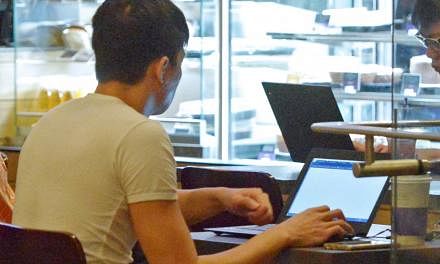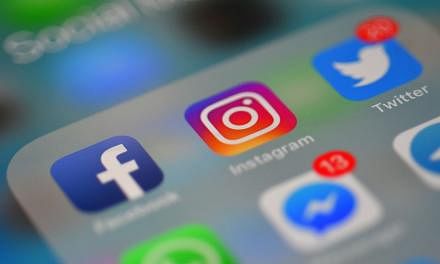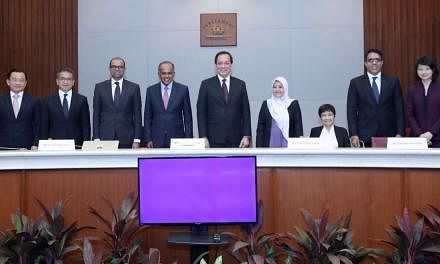SINGAPORE - Alcohol, sex - or the truth?
For many people, fact-checking and truth come a distant second, based on an Institute of Policy Studies (IPS) report by senior research fellow Carol Soon published last year.
Law and Home Affairs Minister K. Shanmugam on Wednesday (March 14) said he was taken aback by this.
"I don't see how truth can compete with alcohol, opiate, or love, or sex or chocolate," he said with a slight chuckle.
Dr Soon responded: "The devil is in the details. I think we need to see how we market the truth."
The exchange underscores a major theme that emerged during the first public hearing on deliberate online falsehoods on Wednesday, as Mr Shanmugam and media academics grappled with the challenges of battling disinformation.
Over two hours, Mr Shanmugam and Dr Soon took a deep dive into the human mind, exploring the various biases that make the spread of disinformation so insidious.
Personal biases present a serious obstacle to the truth, they agreed, noting, among other things, the tendency for people to seek out information that preserves their group identity.
A quote in the 2017 IPS report on how decisions based on confirmation bias make people feel good in the same way drugs and alcohol might sparked a flurry of discussions.
The report stated: "Individuals get a rush of dopamine when they find confirming data similar to when they eat chocolate, have sex or fall in love, thus people tend to focus on information that supports their confirmation bias, and ignore information that contradicts their beliefs."
In citing it, Mr Shanmugam said that falsehoods leave a greater impression, while "the truth limps behind slowly and does not quite eradicate the original false impression".
Research, he said, had shown that attempts to debunk falsehoods may sometimes in fact reinforce them.
Dr Soon called for attempts to correct these to be done quickly, and for these messages to be designed in an appealing way. "Talking about chocolates and sex, (these messages) have to be as sexy as the falsehoods," she said.
In the wide-ranging session, Mr Shanmugam and Dr Soon also explored possible strategies to counter deliberate online falsehoods, and whether efforts to crack down on this problem may curtail freedom of speech.
A key concern of Mr Shanmugam's was the power of online fabrications to stoke tensions on the fraught issues of race and religion.
Dr Soon noted that research showed that people who are more susceptible to falsehoods typically occupy the extreme ends of the political spectrum. As Singapore gears up to confront the scourge of fake news, some worry the move to combat online falsehoods may muzzle political dissent.
But Mr Shanmugam said: "My concern is not so much with people with strong political beliefs. It's more group identity based on racial and religious lines, and that's where I would be focusing on when we come to what we need to do."
The hearings will help the 10-member Select Committee, of which Mr Shanmugam is a member, come up with recommendations on countering deliberate online falsehoods.
On Wednesday, the minister took note of the two academics' proposal that Singapore tap and reinforce its existing legislative framework instead of enacting new legislation.
In a written submission in February, Dr Soon and her colleague Shawn Goh pointed out gaps in existing legislation, such as the Broadcasting Act and Telecommunications Act, which has so far lagged behind rapid technological changes and do not deal with the virality of deliberate online falsehoods. They suggested such laws could be updated.
Mr Shanmugam noted the points raised, adding this will be a matter for the Government to decide on.
He also referred to a submission from Singapore Management University law school dean Goh Yihan, who is slated to speak later on Wednesday, who noted that while there are selected criminal, judicial and executive levers to counter online falsehoods today, "these tools run up against limitations - of scope, speed and adaptability" in the real world.
Dr Soon and Mr Shawn Goh had also suggested setting up an independent body that advises on the type of online falsehoods to act against, but Mr Shanmugam wondered if this can act quickly enough against the viral nature of such fabrications.
"And an independent body that sits there, and you've got to present to it, and often there are limitations on what intelligence you can present to such a body, do you recognise that there are some severe limitations to the approach?" he asked.
The discussion had a global outlook, with Dr Soon and Mr Shanmugam bringing up the consequences of alleged state-organised disinformation campaigns overseas,
The academics wrote in their submission that the situation in Singapore is not yet as severe as in some cases abroad.
Mr Shanmugam, noting that the academics said they had not come across or heard of any major attacks that have attacked its democratic process, cautioned them: "That doesn't mean there aren't any."
Pointing to attacks on several ministry websites here - including the Ministry of Foreign Affairs - he warned that these may well be from foreign state actors.
Workers' Party MP Pritam Singh, who is part of the Select Committee, asked Dr Soon about concerns over the curtailment of freedom of speech.
She said that when considering legislative mechanisms, there needs to be a fine balancing of the interests of protecting national security and public order, with that of enabling people to speak out on governance, including on policies, and enabling the media to report on issues of concern.
Mr Shanmugam later added that the right to speak up and express views does indeed need to be protected.
"The Select Committee (is about) how to enhance it and protect it from deliberate online falsehoods, which are a different category... In fact, one of the purposes of dealing with deliberate online falsehoods is to protect free speech and enhance free speech."
Public hearings to fight online falsehoods: Read the submissions here.

